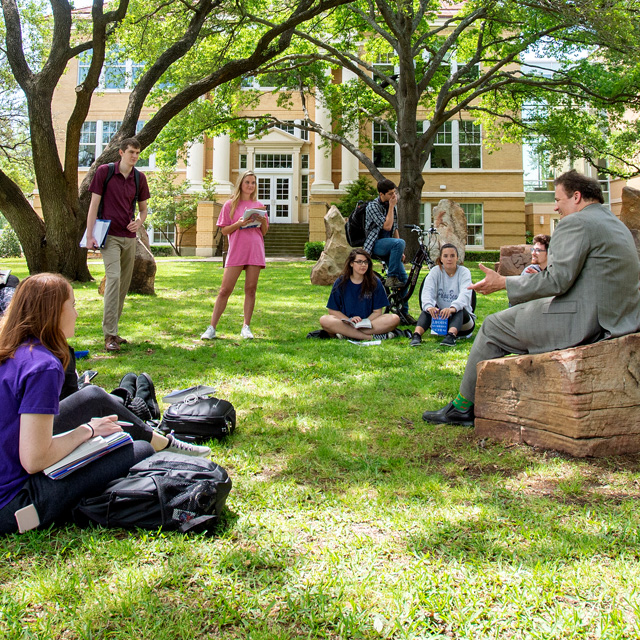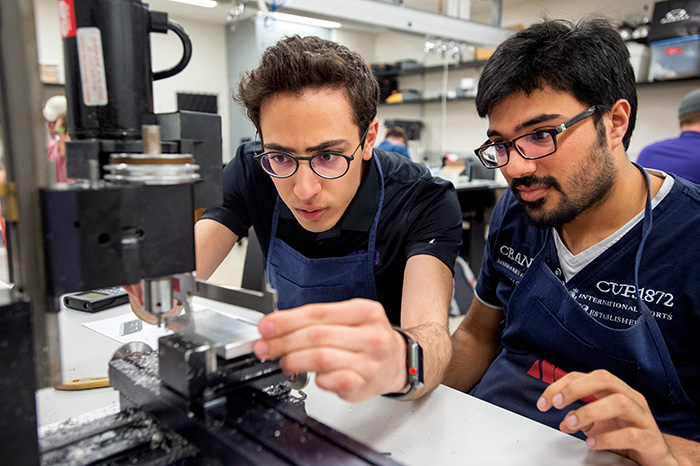
VIA: Lead On Goal 1
Strengthen Academic Profile & Reputation
The academic reputation of the university is of great, perhaps critical, importance in determining whether undergraduate and graduate students, in consultation with parents and counselors, choose to come to us. Similarly, it influences faculty when they make a career covenant.
Clearly, the Academic Profile is a key component of a value proposition that is absolutely fundamental to the success of the university. Although it is in part a perception (and thus subject to manipulation), the reality is that, in the end, decisions about commitment to the university, be it by students, faculty, external grant awards or philanthropic support, generally are based on the strength of the Academic Profile.

What, then, is the Academic Profile of a university? In essence, it is a measure of the value, both real and perceived, of the academic enterprises that are supported by the university. In other words, it is a measure of the investment (broadly defined) that the university makes in its academic mission, combined with the value of its achievement. If a university wishes to pursue an upward trajectory in the national education debate, it will endeavor to improve its Academic Profile.
Simple quantitative components of the Academic Profile include questions such as:
- How many undergraduate students attend TCU?
- What is their choice of major?
- Similarly, how many graduate students attend TCU and what is their choice of program?
- What are the courses and majors offered at TCU?
- What are the postgraduate offerings of the university?
- How many faculty are employed by the university and in which disciplines are they found?
- Importantly, what are the vectors of change for all of the above?
Beyond these and other bland numerical questions, there is another series of questions that generate qualitative assessment. For example:
- What is the academic pedigree of the students?
- What is the academic pedigree of the faculty?
- What is the quality and quantity of instruction (broadly defined)?
- What is the quality and quantity of scholarship and creativity (broadly defined)?
- How well does the symbiosis between Academic Affairs and Student Affairs support the academic mission?
- What is the value of a TCU degree, (a question that can be addressed from several perspectives)?
The answers to these and many similar questions, except perhaps the last one, can easily be obtained from various university fact books; depending on your purpose, this data may be exciting reading.
However, an even more exciting activity is to consider ways by which the totality of the profile can be strengthened, and the reputation of the university thereby enhanced. The analogy to polishing a diamond to its sparkling full capacity is appropriate here; it is important to realize that, in the long view, the Academic Profile is the most true and important component of the front door of the university.
On this assumption, more questions rise to the top of the heap. How much does TCU value its Academic Profile and what is its intellectual and financial commitment to improvement? More philosophically perhaps, how well does the university enable students, faculty and staff achieve their potential in the TCU environment? What is the rate and direction of programmatic growth? Above all, WHY should students and faculty invest their time at TCU?
Part of the answer to the last question is to respond to the daunting list of challenges that our students, and the faculty and staff who teach them, will face in the future. The following list from VIA: Academy of Tomorrow is pertinent:
- An inclusive understanding and appreciation of each other
- A profound understanding of global geography, economics and politics
- A comprehension of science and technology
- An understanding of the dynamics of society
- An understanding of limits and sustainability
- A knowledge of where to acquire trustworthy data in order to be voices of integrity
- A deep understanding of their own potential and of their need for contemplative space
- A love of the arts - music, dance, theatre, the spoken and written word

Truth to tell, the Academic Profile of TCU, as compared with national norms, is of upper middle rank. Certainly, there are students, programs and professors of great brilliance on this campus; conversely, there are areas that need strengthening. That is where we go in the next section of the report.
Many of the recommendations are not radical – there is not a widespread sense that the Academic Mission of the university is “broken” – far from the case. However, there are many ways in which the academic enterprise can run more smoothly and function more nimbly in its response to the future.
